David Medalla was a profoundly interdisciplinary artist, poet, activist, writer, philosopher and raconteur, whose work strove to “investigate reality, and bring out its enigmas.”¹ Reflecting this multiplicity was core to the conception of Parables of Friendship.
The form of realism that he explored was political, material and social, but also ephemeral, transformative and bewildering – realism committed to the many levels, experiences and fragilities needed to understand an interconnected and plural set of realities. There is a great dedication and humility in this approach, which brings the desire for understanding into confrontation with the limits of the knowable. In the exhibition, a 1984 recording of his performance Metamorphosis of an Enigma, a “celebration of friendship and love” and his photo-collage Bambi Shitting Dollars (1989) are exemplary of a particular attitude and spirit. Despite the earnestness of Medalla’s work, there is an undeniable camp humour in its core realisations – that something simultaneously can be one thing, and another – of the vibration of energy or shimmer around the edges when something is, and transcends its essence.
For Medalla, the moments of ‘spirit’ could happen in the interior and private practice of his mask-making, writing and drawing, as much as in the participatory and socially engaged work. By the same token, once a form had become fixed or rigid, he often introduced a contrary movement or semantic shift. After his work with Artists for Democracy (1974–77), Medalla announced himself as a “Transcendental Hedonist,” changing not so much his own vantage point, as the surrounding’s ability to place or compartmentalise his practice. Part of his recurrent and eloquently formulated suspicion of dogma, could be linked with his own biography and identity. The experience of growing up during, and in the immediate aftermath of, the Second World War in the Philipines, his life as an openly queer person at a moment when this was punished by law, were part of how he came to formulate an ethics without moralism.
There are three recognisable periods of colonial occupation in the history of the Philippines: Spanish rule (1521–1898); American rule (1898–1946); Japanese occupation (1941–46). These shifting paradigms speak both of historical rupture and personal – often intergenerational – trauma, an experience and realisation which Medalla often cites in his writings around his work. From interviews and conversations, it appears that this experience of systemic violence, also contributed to Medalla’s heightened suspicion of languages of domination and power, even when manifested in subtle ways or by individuals and groups self-identifying as being on the “right side of history.”
Reflecting on his Cloud Canyons, Medalla often spoke of works with “atomic beginnings,” that then organically grow and evolve in response to intention, context and resources. The process that led ut to this exhibition reflects the same logic. When we began working with David Medalla in early 2019, his long-term collaborator and partner Adam Nankervis, and the Medalla Archive in Berlin, on a different, much smaller exhibition, it became clear that his work warranted a much deeper, more expansive survey. What developed over time were on one level conversations and research, but also dialogues around the context and approach, and the constellation of collaborators realizing Parables of Friendship. Our desire has been to honour the interconnected spirit of Medalla’s work, to approach the shows in Bonn and Bolzano, the publication and associated events as a process of making visible and giving access, and caring for Medalla’s practice. Some of these artworks belong to the more overlooked strands of his output, from his reflections and representations around sexuality and gender, to the ephemeral work on paper – drawings, writings and masks that constituted the largest part of his artistic output.
Medalla’s practice is part of a series of pivotal art historical moments, from Harald Szeemann’s documenta 5 (1972), Rasheed Araeen’s The Other Story at the Hayward Gallery (1989), to Okwui Enwezor’s 2nd Johannesburg Biennale (1997). His practice of self-organising, self-initiating and challenging dominant institutional habits and structures also meant that his work played a pivotal role in confronting the Western focus of the art word and its associated mechanisms of inclusion and exclusion, whilst actively developing alternative platforms and structures in which works by non-Western artists, poets and thinkers could come together. There is also something about the very core of Medalla’s thinking which speaks to our present moment in profound and urgent ways. His practice was anti-essentialist, yet holistic. Medalla’s approach speaks of an ecology of making and being, which is dedicated to unity, without denying difference and change, and a call for a more radical form of inhabiting the world – encompassing both the material and spiritual potential of being. Such an understanding of a politics of identity, speaks of the importance of both the vita activa – engaged and material mode of showing up in the world, of the potential of self-organisation and direct action – and of ones contemplative, inner life. There is great depth and potential in Medalla’s suggestion of being an enigma, even to himself – the bewilderment or even awe in the proposition that we remain in part secret to ourselves.
These thoughts continuously loop back to a certain belief in and hopefulness about the potential of art, “artworks being the substance and sometimes the shadow of our varied and various inspired moments.”
“Do I contradict myself? Very well then I contradict myself, (I am large, I contain multitudes.)”²












